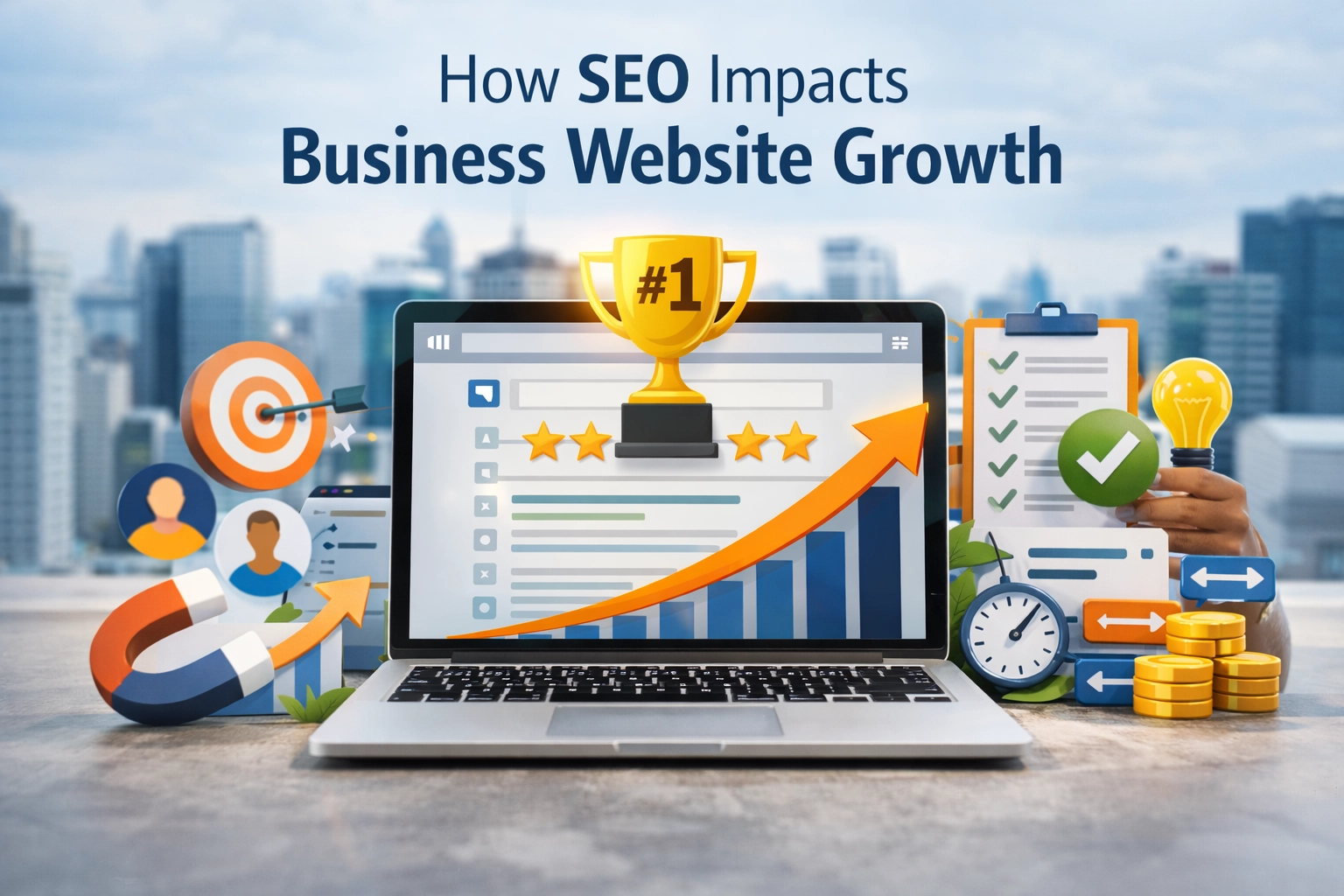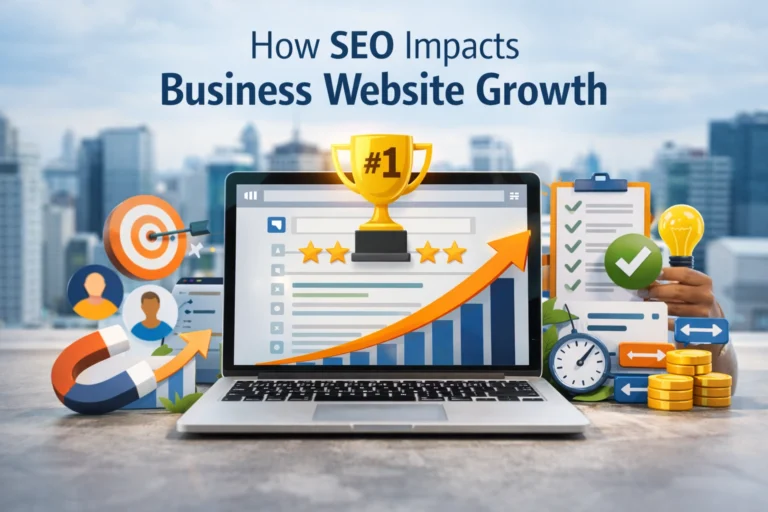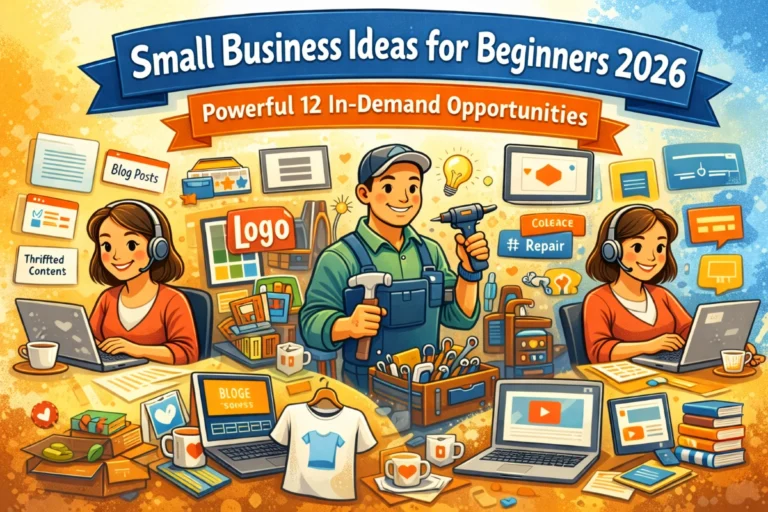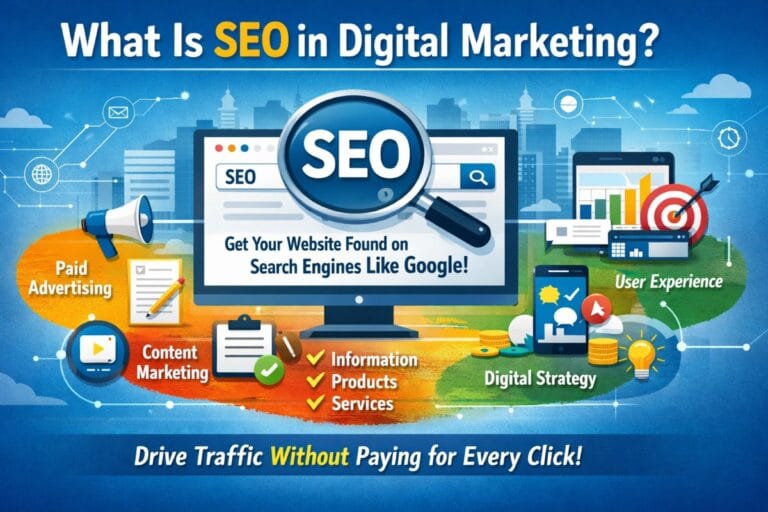Introduction
Search Engine Optimization (SEO) helps businesses improve how their websites appear in search results and how users experience them. Understanding how SEO impacts business website performance is essential for companies operating in a competitive digital environment. In 2026, a business website is no longer just an online brochure. It is a sales channel, a credibility signal, and often the first interaction a customer has with a brand.
If a website is difficult to find, slow to load, or poorly structured, potential customers will leave and choose a competitor. SEO helps prevent this by ensuring that websites are visible, relevant, and easy to use. When implemented correctly, SEO supports every stage of the customer journey, from discovery to conversion and retention.
Understanding SEO and Why It Matters for Businesses
SEO is the process of optimizing a website so search engines can understand its content and rank it for relevant searches. It includes technical improvements, content optimization and user experience enhancements. At its core, SEO exists to connect users with the most helpful and relevant information.
For businesses, SEO matters because search engines are one of the primary ways customers find products and services. How SEO impacts business website visibility directly affects traffic, credibility, and revenue. A well-optimized website attracts users who are actively searching for solutions, making SEO one of the most efficient marketing channels available.
How SEO Impacts a Business Website Through Backlinks
Backlinks remain a foundational element of search engine optimization (SEO) and play a crucial role in improving a business website’s visibility and credibility online.
The Role of Backlinks in Search Rankings
Backlinks act as endorsements from other websites, signaling to search engines that your content is valuable and trustworthy. When authoritative and relevant websites link to your pages, search engines interpret this as a vote of confidence. As a result, websites with strong backlink profiles are more likely to rank higher in search engine results pages (SERPs), driving increased organic traffic.
Quality Link Building for Businesses
Not all backlinks carry the same value. Links earned from reputable, relevant, and high-authority sources have a significantly greater impact than a large volume of low-quality or spammy links. Ethical link-building strategies, such as creating high-quality content, earning mentions from industry publications, and building genuine partnerships, help businesses establish long-term authority. This approach not only improves rankings but also protects websites from search engine penalties associated with manipulative link practices.
Long-Term SEO Benefits
A strong backlink profile contributes to sustained SEO performance by improving domain authority, increasing referral traffic, and enhancing brand credibility. Over time, consistent and ethical backlink acquisition supports stable rankings and a competitive online presence.
For more information on backlinks, visit:
https://moz.com/learn/seo/backlinks
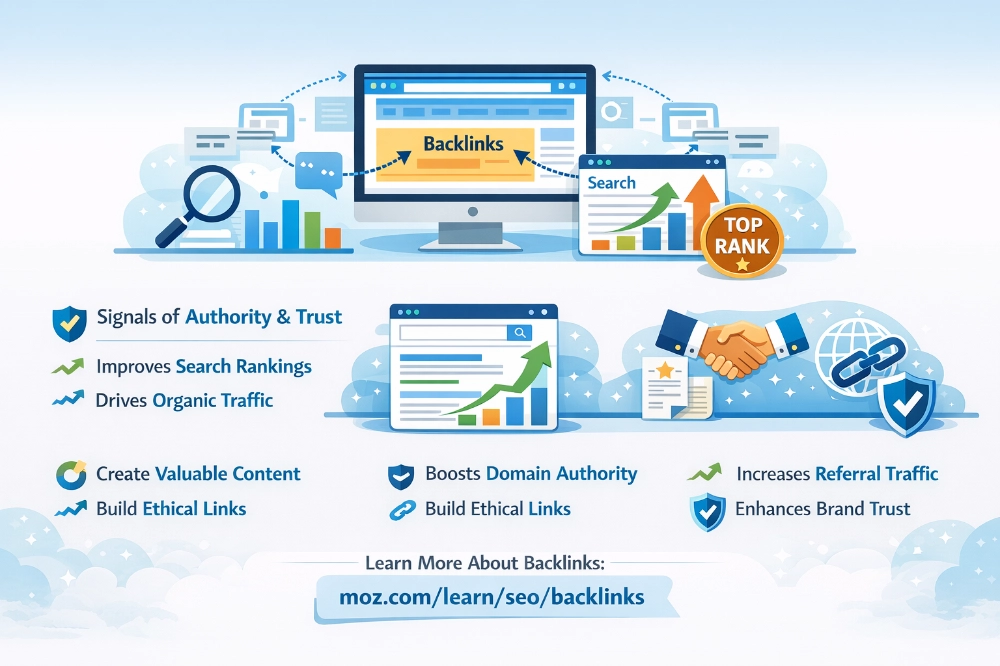
How SEO Impacts Business Website Visibility
One of the most noticeable ways how SEO impacts business website performance is through increased visibility. When a website ranks higher in search results, it is seen by more users. This increased exposure leads to greater brand awareness and recognition over time.
SEO also ensures that visibility is targeted. Instead of attracting random visitors, businesses reach users who are genuinely interested in their offerings. This relevance improves engagement and creates better opportunities for conversions. Consistent visibility in search results keeps a business top of mind and strengthens its online presence.
Organic Search Traffic vs Paid Traffic
Organic traffic plays a critical role in showing how SEO impacts business website growth. Unlike paid advertising, organic traffic does not require continuous spending to maintain visibility. Once a page ranks well, it can continue driving traffic for months or even years.
Paid ads are useful for short-term promotions, but they stop delivering results as soon as the budget runs out. Organic SEO builds long-term value and often delivers a lower cost per acquisition over time. Users also tend to trust organic results more than ads, which can lead to higher engagement and better conversion rates.
Local SEO and Business Discovery
Local SEO is especially important for businesses that serve specific geographic areas. It helps websites appear in location-based searches, making it easier for nearby customers to discover the business. This is one of the clearest examples of how SEO impacts business website reach in real-world scenarios.
By optimizing location-specific keywords, business listings, and customer reviews, companies can attract users who are ready to take action. Local SEO often leads to phone calls, visits, and inquiries, making it a powerful driver of both online and offline growth.
How E-E-A-T Strengthens SEO for Business Websites
A key factor in understanding how SEO impacts business website credibility is E-E-A-T, which stands for Experience, Expertise, Authoritativeness, and Trustworthiness.
Experience reflects real-world knowledge, such as hands-on work, case studies, or practical insights. Expertise focuses on accuracy and depth of understanding. Authoritativeness relates to reputation and recognition within an industry, often supported by quality backlinks and mentions. Trustworthiness includes transparency, security and honest communication.
When businesses align their content and website practices with E-E-A-T principles, they build confidence with both users and search engines. This strengthens rankings, credibility, and long-term performance.
The Role of SEO in Business Credibility and Trust
SEO helps build trust by improving where a business appears in search results. Users often associate higher rankings with reliability and professionalism.
Beyond rankings, SEO encourages businesses to publish helpful, accurate, and well-structured content. This consistent focus on quality demonstrates expertise and reinforces trust over time. As users grow more confident in a website, they are more likely to engage, inquire, and convert.
User Experience and Search Rankings
User experience is central to how SEO impacts business website rankings. Search engines prioritize websites that are fast, mobile-friendly and easy to navigate.
When users can find information quickly and move through a website without frustration, they tend to stay longer and interact more. These positive behaviors signal value to search engines and support better rankings. In short, a better experience leads to stronger SEO results.
Core Web Vitals and Website Performance
Core Web Vitals are performance metrics that explain how SEO impacts business website rankings from a technical perspective. They measure loading speed, interactivity and visual stability.
Websites that load quickly, respond smoothly and maintain stable layouts create a better browsing experience. Improving these metrics reduces bounce rates and increases engagement, which benefits both users and search performance.
SEO and Website Traffic Quality
SEO does not just increase traffic volume. It improves traffic quality. One of the most valuable aspects of understanding how SEO impacts business website growth is recognizing that SEO attracts users with intent.
By targeting relevant keywords and search queries, businesses reach people who are already interested in their products or services. These visitors are more likely to engage with content and take meaningful actions.
How SEO Impacts Business Website Conversions
SEO supports conversions by aligning content with user intent. When visitors find clear, helpful answers to their questions, trust builds naturally.
SEO-focused content guides users through the decision-making process by addressing concerns, explaining benefits, and offering clear next steps. This shows how SEO impacts business website revenue, not just traffic numbers.
SEO as a Long-Term Business Investment
SEO is best viewed as a long-term investment. While results take time, the benefits compound steadily.
Compared to paid advertising, SEO often delivers a lower cost per acquisition over time. Businesses that understand how SEO impacts business website performance can plan for sustainable growth rather than short-term spikes.
Competitive Advantage Through SEO
SEO allows businesses of all sizes to compete effectively. Smaller companies can outrank larger competitors by focusing on niche topics, local search and high-quality content.
This demonstrates how SEO impacts business website competitiveness by rewarding relevance, consistency and user value rather than budget size alone.
Measuring SEO Performance and Results
Measuring performance is essential to understanding how SEO impacts business website success. Key metrics include organic traffic, keyword rankings, engagement rates and conversions.
Regular tracking helps businesses refine strategies, improve weak areas and ensure SEO efforts remain aligned with business goals.
Common SEO Mistakes to Avoid
Many businesses struggle with SEO due to avoidable mistakes. These include keyword stuffing, ignoring mobile users, relying on outdated tactics and publishing low-quality content.
Avoiding these errors protects rankings, credibility and long-term performance.
Frequently Asked Questions
How long does SEO take to show results?
Most businesses see noticeable improvements within three to six months, depending on competition and strategy.
Is SEO suitable for small businesses?
Yes. SEO helps small businesses compete by targeting specific keywords and local audiences.
How SEO impacts business website trust?
SEO improves trust through visibility, content quality, and strong user experience.
Can SEO replace paid advertising?
SEO supports long-term growth, while paid ads are useful for short-term goals.
Is SEO still relevant today?
Yes. Search remains one of the main ways users discover businesses online.
What is the biggest benefit of SEO for businesses?
The biggest benefit is consistent, high-quality traffic that supports sustainable growth.
Conclusion
There’s no doubt that how SEO impacts business website performance is both measurable and long-lasting. From improving visibility and credibility to enhancing user experience, traffic quality, and conversions, SEO supports every stage of sustainable digital growth. When combined with strong E-E-A-T signals and sound technical foundations, SEO becomes a reliable driver of long-term business success.
Rather than focusing only on short-term rankings, effective SEO helps businesses build trust, authority, and competitive strength over time. With the right strategy, SEO continues to deliver value well beyond initial implementation.
For businesses looking to apply these principles in a practical way, working with an experienced digital partner can make the process more focused and efficient. You can explore how tailored SEO and web solutions are delivered by TechWeb.

